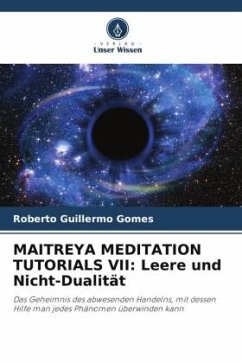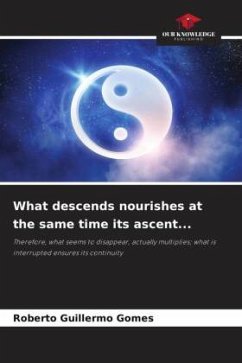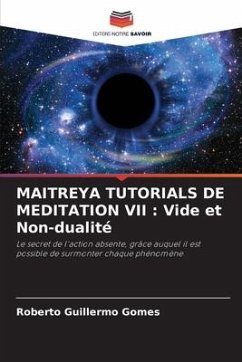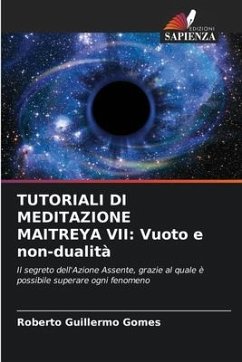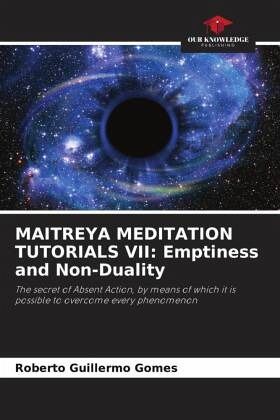
MAITREYA MEDITATION TUTORIALS VII: Emptiness and Non-Duality
The secret of Absent Action, by means of which it is possible to overcome every phenomenon
Versandkostenfrei!
Versandfertig in 6-10 Tagen
60,99 €
inkl. MwSt.

PAYBACK Punkte
30 °P sammeln!
Emptiness is a key concept in Buddhism. Emptiness (Shunyata, in Sanskrit) does not mean Nothingness, it is not the negation of everything, it is not the extreme of nihilism. All phenomena do not exist in and of themselves, they are interdependent, they lack intrinsic existence. Each small object depends on the universe that sustains it to exist and on an endless causal chain. Everything is interconnected, it is the dependent origin of things, where nothing exists in isolation from the rest of the universe.However, the human being, because of his ego, sees external things in isolation and separ...
Emptiness is a key concept in Buddhism. Emptiness (Shunyata, in Sanskrit) does not mean Nothingness, it is not the negation of everything, it is not the extreme of nihilism. All phenomena do not exist in and of themselves, they are interdependent, they lack intrinsic existence. Each small object depends on the universe that sustains it to exist and on an endless causal chain. Everything is interconnected, it is the dependent origin of things, where nothing exists in isolation from the rest of the universe.However, the human being, because of his ego, sees external things in isolation and separated from himself. When everything that exists belongs to an inseparable causal chain. We suffer from an illusion of separation. When we open our mind to Emptiness, we understand that all phenomena are absent of intrinsic existence, including the individual self, then we understand the essential nature of what we are.




